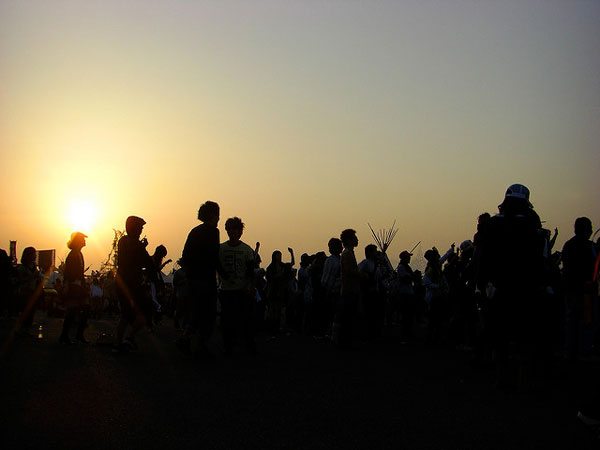
September 21, 2017; everfest
Everfest, a global “festival market platform,” is noticing that music festivals are, once again, being used as platforms for activism. They note that while music festivals originated in activism of the 1950s, they’d become corporate over the years. Lately, more and more of them have become spaces of physical resistance. The body needs physical pleasure, especially when it is fighting injustice, as well as social pleasure; we are not just productive beings.
Ben Kaye writes, “There has been an exponential uptick, thanks to the wildfire that is social media, in both mainstream and underground festivals alike that want to make a difference.”
Everfest found that millennials (and please note that NPQ’s Steve Dubb wrote recently about the limits of generalizations about millennials) are the driving force behind this change, with 89 percent of them reporting having attended a concert or festival in the past year, and 80 percent reporting to be more likely to attend such an event if it contributed to positive social change.
On the other side, Kaye writes that increasingly,
Sign up for our free newsletters
Subscribe to NPQ's newsletters to have our top stories delivered directly to your inbox.
By signing up, you agree to our privacy policy and terms of use, and to receive messages from NPQ and our partners.
Artists and event organizers are utilizing their elevated public status to make impactful contributions to society via activism and philanthropy. From A-list celebrities, (like Alicia Keys and Madonna performing at the Women’s March on Washington or Leonardo DiCaprio and Miley Cyrus donating small fortunes to Hurricane Harvey relief efforts) to underground artists, they are not shying away from the political spotlight nor are they turning their backs on those in need.”
One could add to this the reputed funding of BLM by Prince, Jay-Z, and Beyoncé.
For example, “Afropunk in Brooklyn, New York, frames its entire ethos as a festival on the principles of: ‘No sexism, No racism, No ableism, No ageism, No homophobia, No fatphobia, No transphobia, No hatefulness.’”
Kaye notes, “The infectious thrill of change is catching on.” EventBrite now waives ticket fees for events on their platform that donate 100 percent of proceeds to recovery efforts for Hurricane Harvey or Irma. EventBrite’s SVP of Marketing Dan Kimball said, “We want to do our part in supporting the relief efforts and as the largest ticketing and event technology platform in the world, are uniquely positioned to do so.”
Sociologist Thomas S. Henricks calls these communal events “communitas” and proposed that they are one of four key ways of structuring experiences. Their purpose is satisfying experiences. They offset and balance the other three—work (accomplishing objectives), play (balancing privilege and engagement), and ritual (transforming from one state to another). It is good to see the balancing of the hard work of social change with the pleasures necessary to sustain us. Bringing them both together is something we can get behind.—Cyndi Suarez













